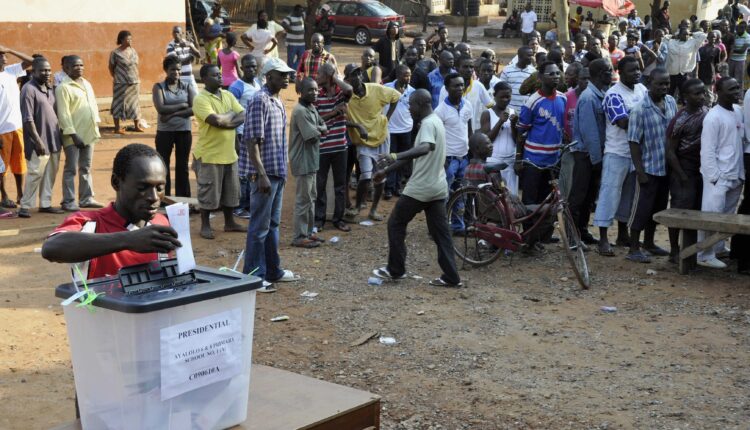
Nicholas Awortwi writes: Time to transform decentralisation, local governance framework
In 1988, Ghana began a new decentralisation policy framework that focused on grassroots citizens’ participation for the effective and efficient services delivery.
Since then, the number of local government (LG) authorities have more than doubled and the average number of residents in an LG jurisdiction has reduced substantially.
As a result, the government is closer to the people, but services have not been delivered responsively, effectively and efficiently.
Many LG services are overwhelmingly centralised in their provision. Having practised that decentralisation framework for over three decades, there are clear signs of progress plateauing, with further investments in the policy appearing to yield little results.
So it is time to change direction. Whatever consideration went into the decision to put ‘decentralisation’ under the Ministry of Local Government and Rural Development (MLGRD), we can assume that it was based on a desire to reinvigorate the policy and practice.
With contemporary development emphasising job creation, inclusive growth and democratic deepening, our decentralisation policy framework should also shift emphasis towards the promotion of Local Economic Development (LED) under democratic local governance system.
This proposition will find expression in Chapters 35(6), 36(2) and 20 of the Constitution. Democratic developmental local governance is anchored on the devolution of power to local governments, prioritising local product development for exports, job creation and income growth.
It is based on the performance of elected mayors, whose grip on power is dependent on the social economic investment they enable in localities.
In much of Asia, attention on LGs focuses on the promotion of LED. Efficient service delivery that our decentralisation has focused on in the past has been the least of their burden because the LGs have moved on.
Ghana’s LGs are far behind in the transition from traditional service delivery orientation to LED. Attempts to promote local industrialisation in the form of the One District One Factory (1D1F) has been centrally driven, showing again our inclination to centralisation although we pretend to implement decentralisation.
Our LGs need to stimulate and promote productive sectors, such as, manufacturing, agriculture, tourism, fishing or any others in which their territories have comparative advantage.
As LGs invest in local products, they will need access to a wide range of innovative financing options.
Direct elections
At the heart of Ghana’s challenges in decentralisation and local governance is the continuous appointment of MMDCEs instead of direct elections by the residents.
As a result, competition, innovation and downward accountability, which are the foundation for LGs’ performance, are completely absent. There are two propositions to fix that problem.
One is the business executive model interspersed with social contract. In this setup, the MMDCEs, when appointed by the President, must sign a performance contract with hard measurable indicators, such as, the amount of revenue to be generated annually; local industrial products to develop; number of jobs to be created; tonnes of waste to be collected, etc.
In addition, the MMDCEs must sign a performance contract with local residents through their representatives in the form of a Citizens’ Charter; and every year, a citizens’ report card will be conducted to assess their performance.
A short-term contract renewable on the basis of citizens’ report card and performance contract will be signed with the President.
The second alternative remedy to fixing downward accountability is through democratic elections. This will require major legal/constitutional reforms. In 2019, the government attempted this approach with the proposed amendment of Article 243 and 55(3) of the Constitution, but inadequate stakeholders’ understanding and consensus led to its cancellation.
Election of MMDCEs
The President has asked for consensus on the process. The two main political parties included in their 2020 manifestoes the need for reforms that would lead to the election of MMDCEs.
The ideal form for the election of MMDCEs will be on political party system but the odd against it is high in the current polarised political environment.
So perhaps, a ‘non-partisan’ basis is the one that is likely to get an overwhelming support from Parliament and voters. It will be less expensive, requiring just parliamentary action without any referendum.
To avoid unmanageable number of applicants, a sieving process can be adopted with legal backing to prune down applicants.
A road map towards achieving this needs to be developed this year to rekindle citizens’ interest in LGs.
Non-partisan MMDCE elections will be a second-best option, but many Ghanaians can live with it than continuous appointment.
Sometimes in public policy, key stakeholders may have to compromise and accept a second-best option and incrementally build on that option to arrive at the optimal level at a later stage.
The ideas proposed in this piece have been presented, discussed and reformulated in Local Governance Practitioners’ Forum (LGPF). As you read these propositions, give us your views as we begin to engage senior policy actors at the MLGRD for reforms.
Nicholas Awortwi is a Director of the Institute of Local Government Studies (ILGS), Accra.



Good Submission